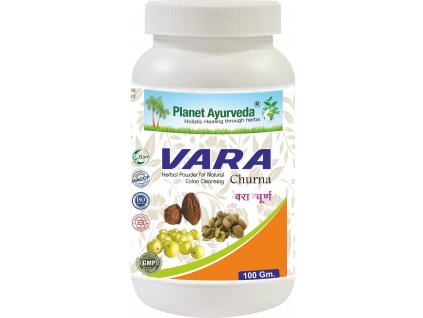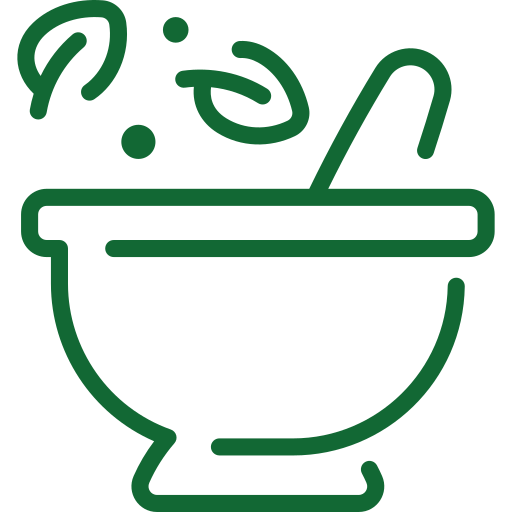Constipation
Constipation: An Ayurvedic and Modern Perspective
What is constipation and what are its symptoms?
Constipation, known also known as constipation, is a condition where you suffer from difficulties in emptying your bowels, associated with dry stools and insufficient stool frequency. This condition can cause discomfort such as swelling, abdominal pain and general discomfort.
Causes of constipation from the point of view of modern medicine and Ayurveda
According to the modern medical point of view, constipation can occur for a variety of reasons, which include:
-
Lack of fiber and fluids in the diet: Lack of fiber and fluids in the diet can slow down bowel movements and cause thickening of the stool. Fiber helps to improve the digestive process and supports the formation of soft and easily passing feces.
-
Lack of exercise: A sedentary lifestyle and lack of physical activity can slow down the digestive system and cause constipation. Movement and exercise support intestinal peristalsis and stimulate digestion.
-
Side effects of some medications: Some medications, including some antidepressants, antihistamines, and strong opioids, can cause constipation as a side effect. This condition can be caused by their effect on the nervous system or on the muscles of the digestive tract.
-
Medical conditions such as irritable bowel syndrome (IBS) or hypothyroidism: Irritable bowel syndrome is a condition that can cause irregular stools and constipation or diarrhea. Hypothyroidism, which is characterized by insufficient thyroid function, can slow down the metabolism and digestive system, leading to constipation.
In the Ayurvedic context, constipation is considered the result of tridosha (vata, pitta, kapha) imbalance in the body. Excess cotton, which is associated with dryness and cold, can cause dryness and hardness of the stool, leading to constipation. Excess pitta can raise the temperature in the digestive tract and slow down digestion, which can also lead to constipation. Excess kapha can cause mucus production and heavy, thickened stools, which can also contribute to constipation.
Recommended herbs to relieve constipation
-
Triphala: This combined extract containing amalaki, bibhitaki and haritaki helps balance the tridoshas and stimulates the digestive system. Amalaki supports the digestive process and detoxifies the body, bibhitaki relieves constipation and haritaki stimulates intestinal peristalsis.
-
Vara Churna: This Ayurvedic preparation is composed of key herbs like Haritaki (Terminalia chebula), Bibhitaki (Terminalia bellirica) and Amalaki (Emblica officinalis). These herbs are known for their digestive properties and ability to balance the tridoshas in the body. Haritaki helps promote digestion and detoxification of the body, Bibhitaki has a soothing effect and helps relieve constipation, while Amalaki is a rich source of vitamin C and antioxidants that strengthen the digestive system and improve overall digestive processes.
-
Amalaki: Contains high amounts of vitamin C and antioxidants, which helps reduce constipation by promoting proper digestion and a healthy digestive tract. It also has anti-inflammatory properties.
-
Bilwa (Aegle marmelos): This herb is known for its anti-inflammatory properties and ability to relax the digestive tract, which improves digestion and relieves constipation.
-
Sounf (Fennel): Sounf contains essential oils that stimulate the digestive system and aid in digestion. It also has carminative and antispasmodic effects, which reduces bloating and relaxes the intestines.
-
Coriander (Coriander Sativum): Coriander is known for its digestive properties and helps eliminate gas and indigestion.
-
Pippali (Piper Longum): Pippali supports the digestive system and increases digestion, which can help relieve constipation.
-
Cumin (Cyminum Cuminum): Cumin has carminative and antispasmodic effects, helping to relax the digestive tract and reduce bloating, which can also help with constipation.
Recommendations for a suitable diet and lifestyle
According to Ayurvedic principles, it is important to have a regular and balanced diet with an emphasis on fresh, organic foods that are rich in fiber and water. It is also important to avoid dry and hard-to-digest foods and to have adequate physical activity. Relaxation techniques such as yoga or meditation can also help relieve stress and promote a healthy digestive system.
Constipation is an unpleasant condition, but with the help of Ayurvedic herbs and appropriate lifestyle habits, you can achieve relief and regain a healthy digestive system.or system. For even more herbs and natural solutions to relieve constipation, browse our wide range in our online store.













